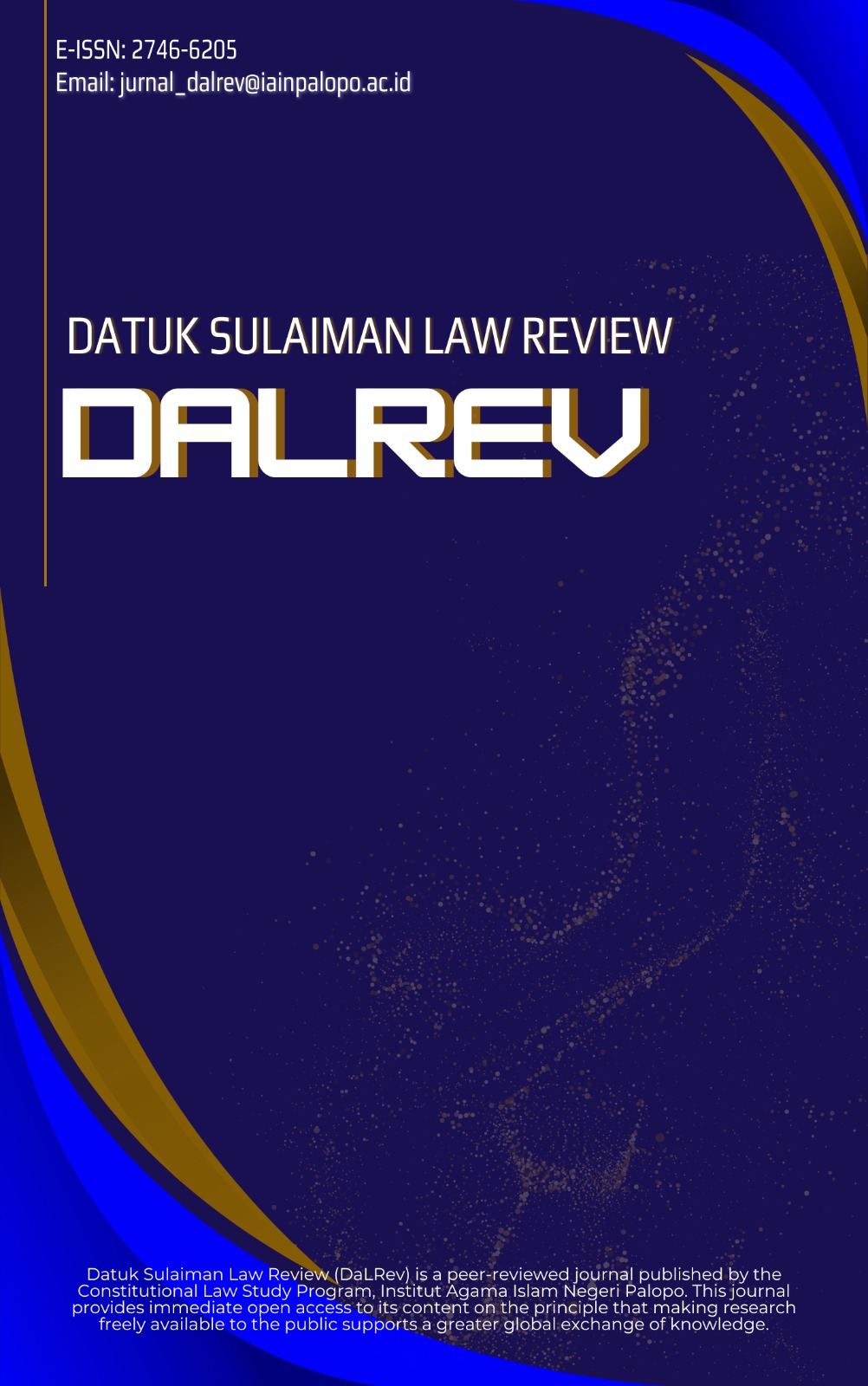Kedudukan Peraturan Komisi Pemilihan Umum (PKPU) Dalam Tata Susunan Peraturan Perundang-Undangan Republik Indonesia
DOI:
https://doi.org/10.24256/dalrev.v1i1.1594Kata Kunci:
General Election, Commission, PKPUAbstrak
Abstract
PKPU was an implementing regulation of law, The position in this composition structure was equalized or aligned with Government Regulations which in theory and Law Number 12 of 2011 concerning the Formation of Laws and Regulations was called regulations that bring the orders of Law, it was just that PKPU more specific. So it can be concluded that the position of PKPU in the statutory arrangement was below the law which has the consequence that a lower level statutory regulation must not conflict with higher regulations (lex superior derogate legi inferior); The position of PKPU in the composition in the Legislation was under the law, that also has implications for the legal strength, the force of law applies a statutory regulation based on the force of law to apply philosophically, juridically, sociologically, and politically and both must meet these four requirements, it was concluded that the legal strength of PKPU Number 9 of 2016 based on the power to apply philosophically, sociologically and politically, while juridically there are elements that are not fulfilled, namely the element of complying with the form, type and material of content and the obligation to does not conflict with higher regulations.
Â
Abstrak
PKPU merupakan peraturan pelaksana dari undang-undang maka kedudukannya dalam tata susunan dipersamakan atau disejajarkan dengan Peraturan Pemerintah yang dalam teori dan Undang-Undang Nomor 12 Tahun 2011 tentang Pembentukan Peraturan Perundang-undangan disebut sebagai peraturan yang menjalankan perintah Undang-Undang, hanya saja PKPU ini lebih bersifat khusus. Maka dapat disimpulkan kedudukan PKPU dalam tata susunan perundang-undangan adalah berada di bawah dari undang-undang yang mengandung konsekuensi bahwa suatu peraturan perundang-undangan yang lebih rendah tingkatannya tidak boleh bertentangan dengan peraturan yang lebih tinggi (lex superior derogate legi inferior); Kedudukan PKPU dalam tata susunan Peraturan Perundang-undangan berada di bawah undang-undang hal ini pun berimplikasi pada kekuatan hukumnya, kekuatan hukum berlaku suatu peraturan perundang-undangan berdasarkan kekuatan hukum berlaku secara filosofis, yuridis, sosiologis, dan politik dan peraturan perundang-undangan yang baik harus memenuhi keempat syarat tersebut, maka disimpulkan bahwa kekuatan hukum PKPU Nomor 9 Tahun 2016 didasarkan atas kekuatan berlaku secara filosofis, sosiologis dan politik sedangkan secara yuridis ada unsur-unsur yang tidak terpenuhi yaitu unsur keharusan kesesuaian bentuk, jenis dan materi muatan dan keharusan untuk tidak bertentangan dengan peraturan yang lebih tinggi.
Unduhan
Diterbitkan
Cara Mengutip
Terbitan
Bagian
Citation Check
Lisensi
Authors retain copyright and grant the journal right of first publication with the work simultaneously licensed under an Attribution-ShareAlike 4.0 International (CC BY-SA 4.0) (https://creativecommons.org/licenses/by-sa/4.0/) that allows others to share the work with an acknowledgement of the work's authorship and initial publication in this journal.
Authors are able to enter into separate, additional contractual arrangements for the non-exclusive distribution of the journal's published version of the work (e.g., post it to an institutional repository or publish it in a book), with an acknowledgement of its initial publication in this journal.
Authors are permitted and encouraged to post their work online (e.g., in institutional repositories or on their website) prior to and during the submission process, as it can lead to productive exchanges, as well as earlier and greater citation of published work (See the Effect of Open Access)














